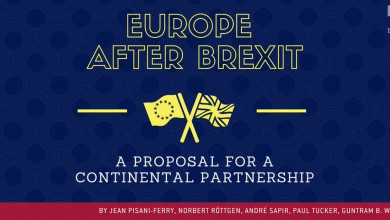After four days of violent market reactions to the prospects of Brexit, markets have paused and gained in strength slightly. Why has that happened?
In the wake of the referendum result of June 23, financial markets around the world nosedived. The pound sterling lost more than 10% while the British stock market was down 7 percent. Meanwhile, stocks of financial institutions all over Europe and in particular in Britain have suffered tremendously.
Rarely had economists been so united.
This reaction was in line with economists’ predictions. Rarely had economists been so united. Most agreed that leaving the EU’s single market would have negative implications for UK and EU business, probably causing a recession in the short-term and lowering GDP levels in the long-term.
Economists also agree that the long-term economic consequences for GDP levels largely depend on the terms of the agreement that the UK strikes with the EU and other trading partners.
Markets have so far behaved in line with what economic theory would tell you about the effects of increasing barriers to trade: economic activity falls, which in turn should lead to lower stock market valuation.
So why have markets recovered today? In such volatile circumstances, it is obviously difficult to assign a clear and single reason for this recovery in the stock and exchange market. One aspect is certainly the extent of political chaos in the UK, and the extent to which markets sense that the political situation is getting sorted out and a new government put in place.
The market recovery is also the result of a clear change in political direction in the UK.
But a further and important factor is the extent to which the promises made during the referendum are being broken. In my view the market recovery is also the result of a clear change in political direction in the UK. Let me explain how:
Many of those who voted for Brexit did so on the assumption that
- Brexit would reduce immigration from the EU.
- The UK would not seek access to the EU’s single market and get rid of the “shackles of EU membership”.
Both propositions were largely taken off the table on Monday by Boris Johnson and Michael Gove, who were part of the official leave campaign. Boris Johnson now talks of the UK remaining a part of Europe and seeking to have access to the single market. Others have meanwhile noted that being outside of the EU would not necessarily mean limiting the free movement of labour from the EU.
Newspapers now proclaim that the most realistic option for the UK is to become like Norway.
Newspapers now proclaim that the most realistic option for the UK is to become like Norway. Let’s recall that Norway is a full member of the single market with full labour mobility, full acceptance of all EU regulation, EU competition policy, EU jurisprudence on single market matters and almost full payment into the EU budget.
Norway is, in fact, basically a member of the EU in economic terms without having any formal possibility to exercise its sovereignty by shaping EU legislation. This option would indeed be very favourable to British and European business, compared to leaving the single market. But it would break promises made during the referendum and it would diminish, not strengthen, the UK’s sovereignty, compared to the UK being a member of the EU. An alternative pondered by Gideon Rachmann in the FT is that Britain may not even leave the EU in the end.
Market volatility will continue in the coming months, until the terms of the UK’s relationship with the EU are settled.
This story indicates that market volatility will continue in the coming months, until the terms of the UK’s relationship with the EU are settled. The more politically possible it looks that the UK will stay closely associated with the EU’s single market, the better the market reaction will be. Meanwhile, the more isolationist the approach taken by the UK and the more punitive the mood on the continent, the bigger the stock market losses for both, the UK and the EU.
This reveals a basic economic truth: despite claims to the contrary: you cannot have your cake and eat it too. But the economic truth creates a political dilemma: either you lose economically or you break electoral promises. And what were sold as choices before the referendum are now effectively political dilemmas.


